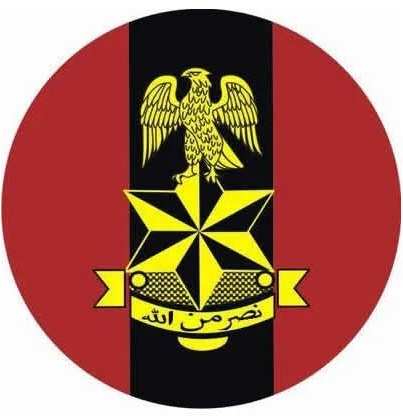
Pix; Vice Admiral Emmanuel Ogalla, Chief of Naval Staff
By Isiaka Mustapha, CEO/Editor-in-Chief, People’s Security Monitor
Crude oil theft remains a major threat to Nigeria’s economy, with daily losses estimated between 200,000 and 400,000 barrels. This results in a staggering monthly revenue shortfall exceeding $1.5 billion. Leading the fight against this criminal activity is the Nigerian Navy, the nation’s principal maritime security force. Although recent operations have yielded notable progress, persistent structural flaws and systemic inefficiencies continue to hinder the achievement of lasting success.
In recent years, the Nigerian Navy has significantly intensified its operations across oil-producing regions, particularly within the creeks of the Niger Delta. Key initiatives such as Operation Dakatar Da Barawo and Operation Delata Sanity have led to increased patrols and more coordinated enforcement efforts. As a result, the Navy has dismantled over a thousand illegal refining sites, seized millions of litres of stolen petroleum products, and arrested hundreds of suspects linked to oil theft. Furthermore, naval forces have intercepted hundreds of large wooden boats commonly used to transport crude oil and illegally refined products through the country’s intricate network of waterways.
A major factor behind this improvement has been the deployment of surveillance technology. Systems like the Maritime Domain Awareness platform and the Falcon Eye Surveillance network have enhanced the Navy’s capacity to monitor coastal activities in real time. The ability to track suspicious movement across Nigeria’s exclusive economic zone has significantly increased. This upgrade in operational efficiency has also contributed to a notable achievement: the delisting of Nigerian waters from the global piracy watchlist. That development is largely credited to stronger sea patrols and more effective intelligence coordination with international security partners.
Cooperation with other security stakeholders has also helped strengthen outcomes. The Navy has formed operational alliances with agencies such as the Nigeria Security and Civil Defence Corps (NSCDC), the Nigerian Army, and private firms like Tantita Security Services. Local vigilante networks in oil-rich communities have further assisted in gathering timely intelligence. These partnerships have proven useful in securing high-risk locations such as Bonny, Brass, and Escravos, where crude theft activities have remained persistent for years.
Leadership under Vice Admiral Emmanuel Ogalla has been pivotal in driving this renewed focus. Naval units have received fresh operational resources, including new interceptor vessels and rehabilitated patrol platforms. Logistics have improved across several forward bases, and tactical units have reported better mobility and response times. The Navy’s posture, under Ogalla’s command, now reflects a force better prepared and more committed to addressing oil theft head-on.
However, despite the achievements, significant challenges continue to undermine the Navy’s efforts. Allegations of internal sabotage remain a concern. Multiple reports over time have pointed to cases of alleged collusion among naval personnel suggesting that some officers may be aiding or shielding illegal oil operations. While these claims are often difficult to prove, the perception alone raises doubts about the credibility of the broader anti-theft campaign.
Another critical barrier lies in the absence of seamless coordination among security agencies. There has been consistent duplication of roles between the Navy, the Police Marine Unit, NSCDC operatives, NNPCL’s private security contractors, and other unidentified entities. In some instances, these overlapping mandates have resulted in confusion, operational conflict, or the delayed deployment of crucial resources. The lack of a unified command structure causes great damages to the overall security framework and offers opportunities for oil thieves to exploit the gaps.
Operational bases situated in remote terrain often operate under harsh logistical constraints. Some suffer from irregular fuel supplies, poorly maintained equipment, and a complete absence of aerial surveillance tools. These limitations reduce mobility in the swampy and riverine areas where illegal refining activities thrive. As a result, large swathes of the Niger Delta remain under-policed, giving criminals the space to operate with little resistance.
A top maritime security expert disclosed: ”Perhaps the most discouraging aspect of this ongoing war is the weak judicial response or near-total lack of it to oil-related crimes. Many of those arrested are never convicted. In 2023 alone, a significant number of suspects were released due to poorly compiled case files, prolonged trial delays, or jurisdictional confusion between state and federal courts. These legal bottlenecks weaken deterrence and embolden the very networks the Navy is trying to dismantle.
Given these persistent challenges, maritime experts and civil society organizations are advocating for sweeping reforms. One of the key proposals is the creation of a special tribunal dedicated to oil theft and environmental offenses, aimed at ensuring swifter and more effective justice. Additionally, stakeholders recommend establishing a comprehensive digital network linking the Navy, NNPCL, EFCC, and Customs to facilitate real-time data sharing, asset tracking, and coordinated prosecution efforts. The formation of independent oversight bodies has also been suggested to probe potential internal collusion within security agencies. Furthermore, there is a pressing need to fully upgrade riverine and deepwater operational hubs with advanced surveillance technologies, amphibious support vessels, and enhanced mobility equipment.”
In spite of the setbacks, the Nigerian Navy has made commendable progress in the battle against crude oil theft. Its improved tactical posture, wider intelligence networks, and enhanced international reputation all point to a military force that is evolving. Yet, unless the broader ecosystem is fixed—by closing legal loopholes, resolving interagency rivalries, and eliminating internal compromise—oil theft will continue to thrive.
The Navy has indeed made a strong push forward. But victory will only be assured when the institutions surrounding it are equally strengthened to sustain and complement its efforts.




